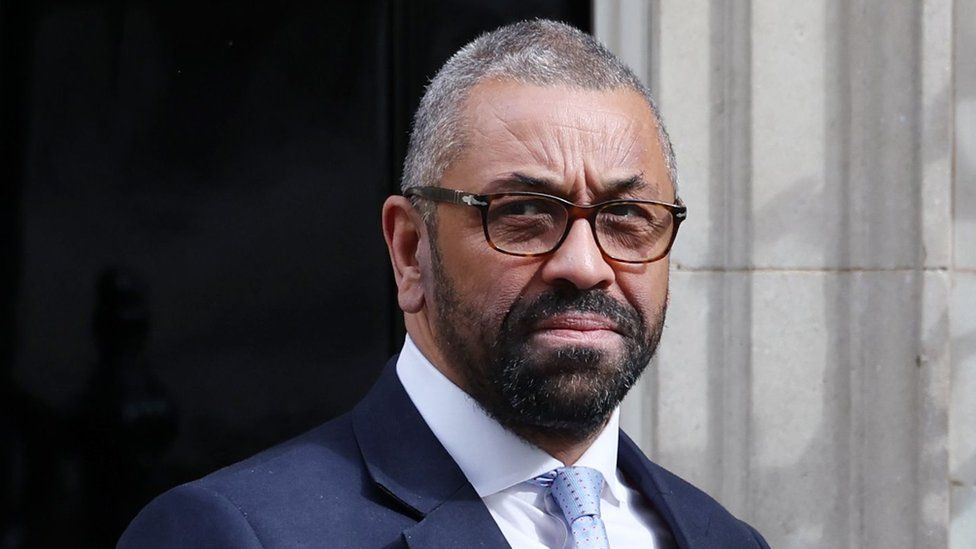ARTICLE AD BOX
 Image source, ANDY RAIN/EPA-EFE/REX/Shutterstock
Image source, ANDY RAIN/EPA-EFE/REX/Shutterstock
By Nick Eardley & Becky Morton
BBC Politics
Home Secretary James Cleverly has said he opposes attempts to reduce the time limit for abortion.
Several MPs are seeking to change the law on abortions through the Criminal Justice Bill, which is currently making its way through Parliament.
But Mr Cleverly urged his colleagues not to pursue the abortion debate as part of the bill before the election.
"This is not the kind of bill where we should have something like this," he said.
Speaking to journalists in Westminster, he said: "I am pro-choice. Safe and legal access to abortion is incredibly important."
The bill was being used as a "bit of a Christmas tree" and "lots of things are being hung on it", Mr Cleverly added.
He also said the debate would be "short and slightly rushed".
The bill, which covers England and Wales, has a wide scope, including measures to deal with anti-social behaviour and rough sleeping, new powers to tackle economic crime, and tougher sentences for the most serious offences.
This means MPs have been able to propose changes linked to various other issues.
Conservative Caroline Ansell has put forward an amendment which would reduce the upper limit for abortion in most cases from 24 to 22 weeks, securing the support of 40 other MPs.
Separately, former cabinet minister Sir Liam Fox has proposed not allowing terminations beyond 24 weeks where any risk is purely on the grounds of a diagnosis of Down's syndrome.
Currently abortions can be legally performed beyond 24 weeks where it is found a foetus has Down's syndrome
Meanwhile, Labour's Diana Johnson, backed by 35 other MPs, has put forward changes to ensure no woman would face prosecution for ending her pregnancy.
Under current laws in Great Britain, an abortion is legal if it is approved by two doctors and takes place within the first 24 weeks of pregnancy.
However, there has been concern from campaigners about the increasing number of prosecutions of women who end their pregnancies outside the legal time limit.
Votes on abortion in Parliament are typically free votes, meaning party managers do not tell their MPs how to vote.
But previous votes have tended to be on private members' bills, put forward by individual MPs, rather than government measures.
A date for the next stage of the Criminal Justice Bill, when MPs would get a chance to vote on any amendments selected by the Speaker, has not yet been set.

 8 months ago
44
8 months ago
44








 English (US) ·
English (US) ·